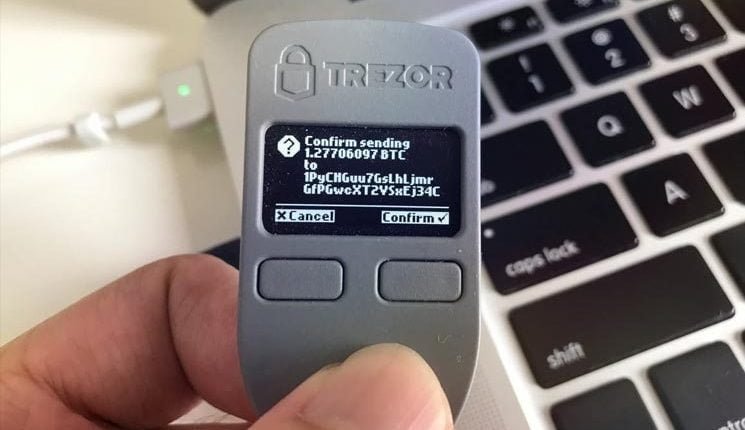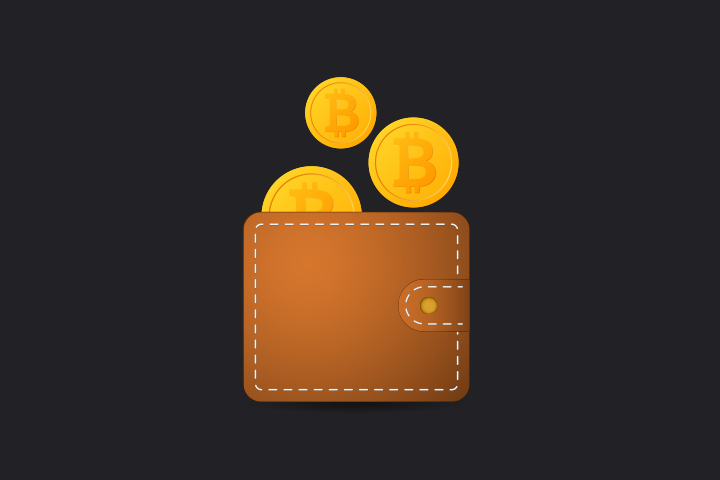Going a little on the technical side of the blog, for the past few days, I've been exploring the world of Cryptocurrencies (Example: Bitcoin) and the technologies related to it. While the concept of Cryptocurrency (especially in my country) is relatively unknown because of the dominance of paper currency (or fiat currency in the financial term), most of us have heard the term cryptocurrency, and if not cryptocurrency, then definitely bitcoin. There are a lot of different cryptocurrencies currently in the market and thanks to a sudden boom in the value of bitcoin, it became a popular name in the market leaving the rest of its competitors behind and also Bitcoin was the first-ever cryptocurrency to be created. (Its whitepaper is linked on the "My Cryptocurrency Guide" page).
Cryptocurrencies (in simple words and not diverting from the topic) are virtual currencies, meaning they don't have a physical form but the fascinating part is that there exist several methods to store these currencies that have a physical form. These wallets exist in a variety of categories and I'll share my knowledge about them.
The very basic categorization is that there are two kinds of wallets, that are hot wallets and cold wallets. They are also called hot and cold storage. Hot wallets are the wallets that always require an internet connection to function, i.e. they are generally Softwares and websites where all the functions are performed. They are easier to set up and access. But the negative side is that they are more susceptible to hackers and other possible vulnerabilities. The reason is very simple that they are connected to the internet and the rest is self-explanatory. Cold wallets are those wallets that aren't connected to the internet. We also call them Hardware wallets because they are available in a physical form. This means that they are more secure but are really costly. In India, their price generally starts at ₹10,000. But good security comes at a cost. Cold wallets are connected to a computer using the USB, therefore I'd recommend unplugging the wallet as the task is complete to remain on the safer side as USB ports can also be hacked. Also, not all wallets are compatible with all currencies which somewhat means that for beginners, cold wallets aren't really useful. Hot wallets, on the other hand, are absolutely free and thus can be tried initially as later the wallet addresses can be shifted with ease.
There is another type of cold wallet, that is used by people all over the world which is a paper wallet (I have provided its link below). It is also called the QR code Wallet. Unlike other cold wallets, they are absolutely free and are also really safe. We can generate unlimited paper wallets online and print them out and use their QR codes to carry easy transactions. I am again mentioning since paper wallets are offline cold storage, they are very safe and perhaps the safest of the available options until we lose the paper on which the wallet is printed. A better way to keep these wallets safe can be to get a secured dedicated USB drive which isn't very costly and store the wallet there.
Any cryptocurrency wallet works on the 2 step authentication which contains a public key that is shared among others for transactions and a private key that is not meant to share with anybody. Sharing the private key will mean that we'll give our wallet access to others and therefore the circumstances are understandable. A very simple way to explain the public and the private key is by comparing them with email IDs and passwords. We share our IDs with everyone but we keep our passwords a secret. If our passwords get exposed, our accounts get vulnerable to my threats.
 |
| Trezor Hardware Wallet is one of the most popular Cold Wallets available today |
Now, after knowing about Hot and Cold storage, here are the Pros and Cons of each of them followed by some popular Hot and Cold wallets.
Hot Wallets:
Pros:
- They are Free.
- They are Quick to access (because many of them can also be accessed using a mobile app).
- They are easy to set up and are user-friendly.
Cons:
- They are connected to the Internet and are therefore less secure.
Popular Hot Wallets:
Cold Wallets:
Pros:
- They are very secure because being offline provides them a greater level of safety.
Cons:
- They are really expensive.
- Not preferred for regular transactions on the go.
- Not all wallets support all currencies.
Popular Cold Wallets:
- QR Code Paper Wallets
- Trezor
- Ledger Nano S
- Keepkey
- Digital Bitbox
Each of them can be found on a popular E-commerce Website.
The scope of investing in Cryptocurrencies and other related activities is indeed very limited in India at the present but I'm sure that cryptocurrencies the future of transactions all over the world because of the many benefits they have over the currently circulated fiat currency.
P.S. This is my first post on Cryptocurrencies and I'll be writing more as I build my knowledge in this field.


Comments
Post a Comment